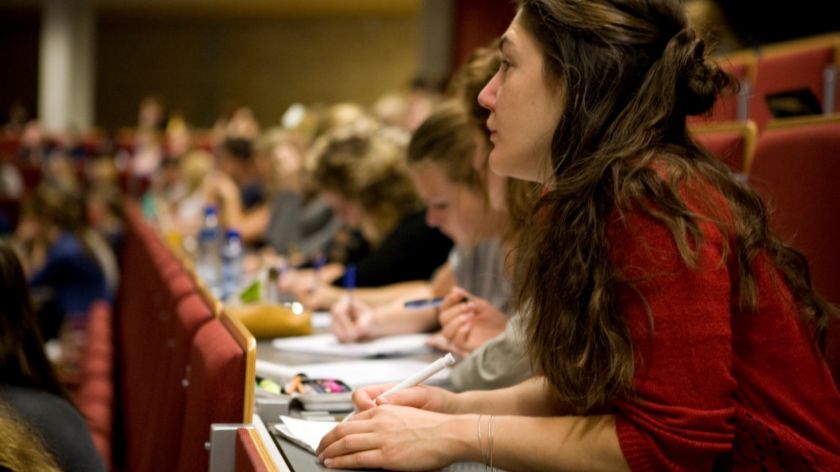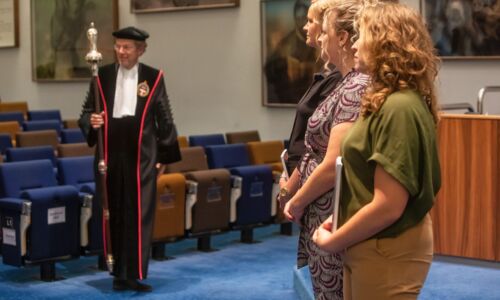‘Necessary to select students based on nationality’
-
 Foto: Anoek Bleumer
Foto: Anoek Bleumer
The University of Amsterdam wants to put a stop to the growing number of international students. How does Radboud University feel about this? In the opinion of Wessel Meijer, head of the International Office, universities should be able to select on the basis of nationality. ‘Some programmes have clearly arrived at this point already.’
In her New Year’s speech on Monday, Karen Maex, the Rector Magnificus of the University of Amsterdam, made an unusual request. She asked the minister of education to give universities ‘instruments’ with which they can regulate the percentage of international students. Students from EU countries must currently be treated the same as Dutch students. As a result, universities can’t influence the number of international students in their programmes. And the consequences of the large influx of foreign students in recent years are becoming visible.
Disadvantages
More than 100,000 international students came to the Netherlands this year. At Radboud University 11 percent of the students arrived from abroad; this percentage does not include the exchange students, who often remain for only one semester. The percentage of new students is higher (15 percent), most of them from Germany. The University of Amsterdam has even more foreign students: 15 percent international and an influx of 25 percent.
Although internationalisation is an important goal for many universities, the large percentages have their disadvantages. In Amsterdam, for example, there are housing problems, and the UvA is concerned that Dutch students will be barred from programmes because they are already full of international students.
Discrimination
Wessel Meijer, head of the International Office at Radboud University, recognises the problem. ‘Look at what’s happening in Nijmegen in the bachelor of psychology programme given in English. Most of the students are German.’ Although there is nothing wrong with German students, Meijer feels that the ideal of internationalisation is to create an international classroom. ‘And this consists of a mix of all sorts of nationalities. At a certain point, you have enough of a certain nationality.’ In a programme dominated by one group, their culture also predominates. ‘Students from other nationalities, including Dutch students, could feel less at home,’ he said.
‘At a certain point, you have enough of a certain nationality’
Universities may not base their selection on nationality in order to curtail this effect. ‘We have to agree with Maex’s appeal,’ Meijer believes. ‘Dutch universities have asked the Association of Universities in the Netherlands (VSNU) to bring this problem to the attention of the government.’ Radboud University is still developing its internationalisation strategy for the next six years, and Meijer does not want to go into detail now. But he did say that an instrument like the one Maex requested would be welcome.
‘Concretely speaking, we could then refuse students on the basis of their nationality. That might seem like discrimination, so we would have to make clear in advance what the regulations are and how we are going to put them into operation. But some programmes at Radboud University are in need of this.’
Quota
A quota, which is already possible now, doesn’t help to solve this problem. ‘You have to request this a year in advance and even then you can’t select on the basis of nationality. A quota would also entail refusing admittance to Dutch students, which I find problematic. Then, as a result of internationalisation, students wouldn’t be admitted to a programme in their own country. That can’t be the intention,’ Meijer concluded.



